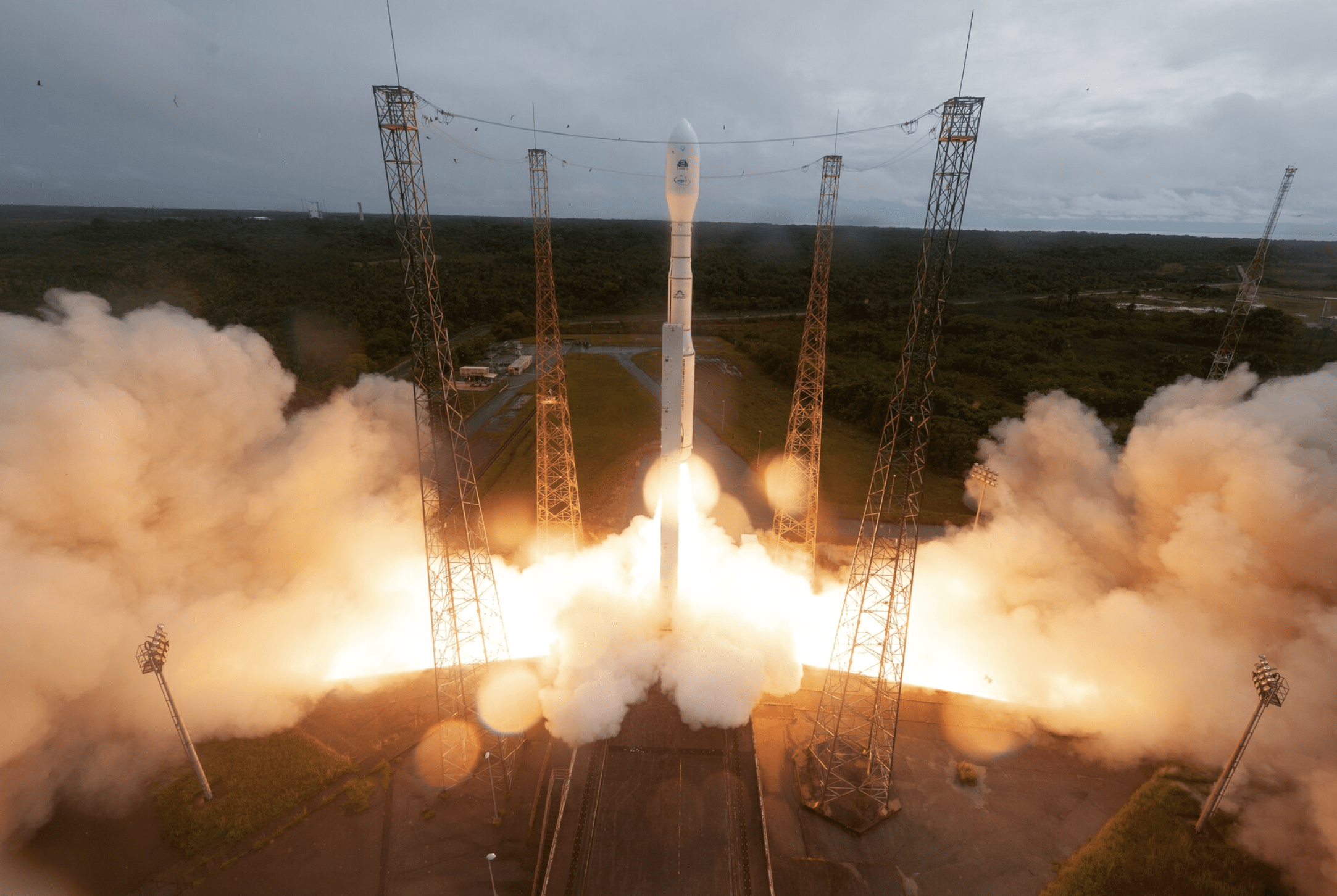The European Space Agency’s (ESA) new rocket, the Vega-C, successfully blasted off from the ESA’s launch site in French Guiana for its debut launch on July 13th.
During its maiden flight, it launched the LARES-2—a 295 kilograms satellite developed by the Italian Space Agency—as its principal cargo, as well as several French, Italian, and Slovenian research CubeSats, which are smaller satellites, the ESA said in a press release.
The spacecraft is carrying out a variety of experiments, from testing Einstein’s general theory of relativity to plant growth in microgravity environments.
The Vega-C is an upgrade from the Vega rocket that first took flight in 2012. The new design can launch up to 2.2 tonnes into orbit around the Earth, compared with the 1.5 tonnes of the earlier model. It can also handle payloads of a larger volume. This allows for launching not only heavier freight, but includes “rideshare” payloads, such as the collection of spacecraft from the first launch—at the same operational and service costs as the earlier Vega model.
“Vega-C features major enhancements from Vega, both in the rocket and its ground infrastructure,” says Renato Lafranconi, Vega programmes manager. “We’ve developed a new configuration with significant changes to many features of a proven concept, but the goal is to deliver major improvements in performance and competitiveness.”
It will be operated by the French company Arianespace and work in conjunction with the French Ariane 6 heavy lifter.
The Italian-led development of the new rocket comes just when Europe needs it most. The ESA had been heavily reliant on Russia rockets, which were prohibited when Russia invaded Ukraine at the end of February. But European access to space is still in high demand.
“With Vega-C and Ariane 6, Europe will have a flexible, independent solution for a fast-changing launch market,” ESA’s Director of Space Transportation, Daniel Neuenschwander, said. “And, these two systems are the foundation of a development plan that will serve European institutions and commercial partners, opening a new chapter of European services.”
The BBC reports that even before the rocket’s successful debut, it was fully booked through 2023, 2024, and 2025.
“The launch demand in Europe in the next couple of years and beyond is going to be high, and Vega-C and Ariane-6 are going to be our workhorses,” said Josef Aschbacher, the director general of the European Space Agency.
“You should see this maiden flight as the first launch of a new generation of European rockets, the start of a strengthening of the role of Europe in space transportation,” Giorgio Saccoccia, the president of the Italian Space Agency, told BBC News.
The BBC also reports that though the rocket is a good replacement for Russian rockets, there are still concerns that the Russia-Ukraine conflict might interrupt the supply of an essential part, the RD-843 motor, produced by Ukraine’s state-owned aerospace manufacturer, Yuzhmash. According to the BBC, Avio, the Italian firm responsible for assembling Vega vehicles, says it already has enough in stock for the short term. For the longer term, the ESA is developing a western European alternative.
Austria, Belgium, the Czech Republic, France, Germany, Ireland, Italy, the Netherlands, Norway, Romania, Spain, Sweden and Switzerland participated in the project.





